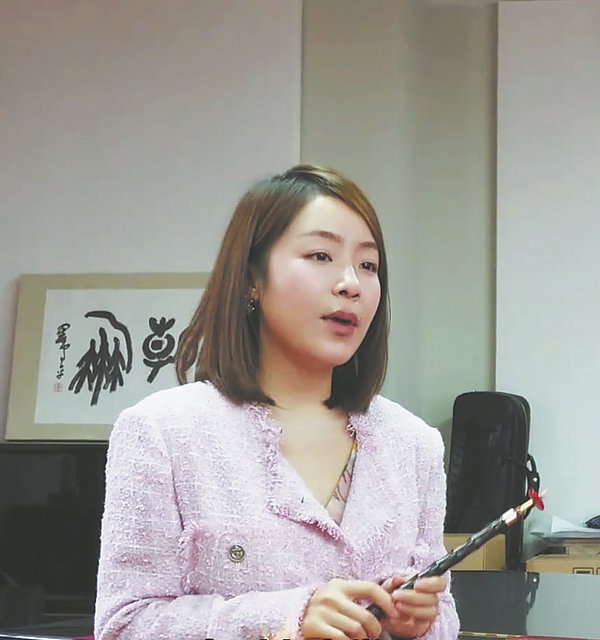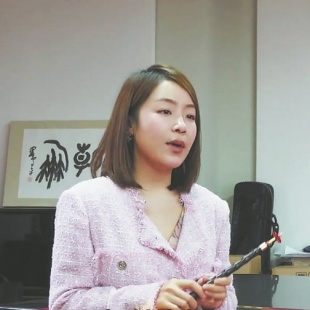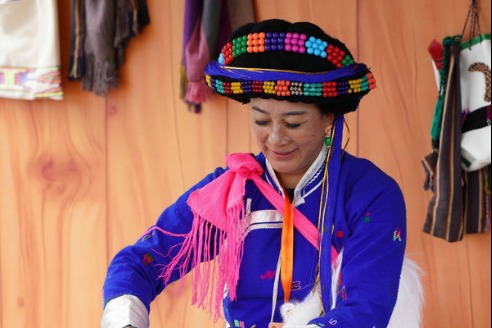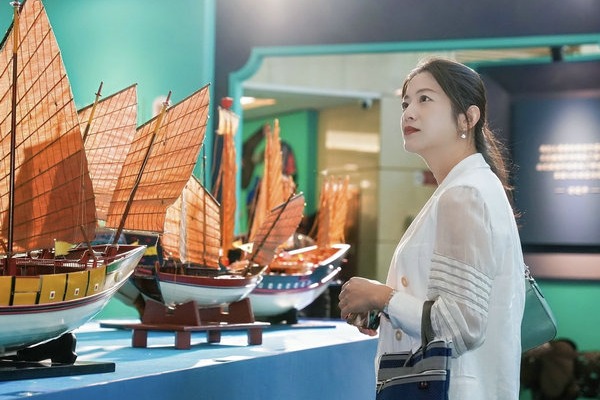Musician's dedication helps revive tradition


SHANGHAI — As a child, Liu Wenwen detested the suona, a "loud, high-pitched" traditional Chinese musical instrument, also an ancestral heritage of her family that was to become her career.
Her peers at primary school laughed at her, saying her whole family was engaged only in "weddings and funerals". Indeed, these are the two major occasions in which the horn-like wind instrument is played in China's rural areas, including Liu's home city Jining, Shandong province.
Liu says she felt ashamed. In the 1990s, China's reform and opening-up drive was in full swing, and people admired things that were modern and international. "The suona, in comparison, was considered an art of the hillbilly."
Despite her reluctance, she followed her parents into the trade as early as 3 years old, "just for fun", she says. After all, her parents both played the suona, and she would fall asleep and wake to the loud music every day.
Her father's family has performed with the suona for seven generations, while the tradition on her mother's side of the family can be traced back to the early Qing Dynasty (1644-1911).
The music is ingrained in Liu's DNA, but it takes time and hard work to become a virtuoso musician. The instrument is so loud that it annoyed the neighbors when she practiced at home. "So my parents would wake me up at 4 am every day and take me to practice outside in a park."
Besides the suona, Liu has also learned traditional Chinese vocal music and dancing, skills that have improved her oral muscles and sense of rhythm, helping equip her to be a professional musician.
It wasn't until 2008, she says, that she first found suona music beautiful. That was when she entered the Shanghai Conservatory of Music to learn the instrument more systematically from Liu Ying, a professor and top player.
"The music played by the professor is just amazing, and different from what I had heard before," she says.
While she has followed her parents' vocation, she says she only fell in love with the instrument at university. The first suona player to study for a doctoral degree, Liu Wenwen is also teaching at her alma mater in Shanghai.
She loves exchanging ideas about suona playing techniques with her students. "It's wonderful to see the younger generation carrying on this cultural heritage."
Liu Wenwen said she is delighted to see the suona regain popularity among young people, sometimes combined with jazz, opera and other art forms. This has reversed its decline in the 1990s.

Her name, when mentioned on China's social media platforms, often is followed by a video of her live performance at a concert in Sydney, Australia, alongside award-winning composer Tan Dun in 2017. For her debut on the international stage, she played Hundreds of Birds Paying Homage to Phoenix, a masterpiece that often represents excellence in suona performance.
A year earlier, a film of the same name had caused widespread concern over traditional suona music, which was on the verge of extinction, with senior musicians struggling to make ends meet and forced to take up other trades, while young apprentices stopped learning the instrument altogether.
Liu Wenwen, however, promoted the so-called hillbilly music to an international audience, thanks to Tan and his collaborators, who recomposed the traditional music and arranged it into an orchestra piece.
"At first I was timid and scared, but Tan said something that strengthened me," she says.
She recalls that the composer said to her, "You will be part of an impressive scene, with your Western-style dress and traditional Chinese instrument, and with folk music accompanied by an orchestra".
The audience was truly impressed, she says. Westerners were amazed by the loud, unfamiliar instrument and its exotic, colorful music, which imitated the chirping of hundreds of birds, whereas the Chinese were stirred by nostalgia.
"It was a seamless dialogue between a 'hillbilly' Chinese instrument and a Western orchestra, loved by the musicians and audience alike," she says. "I felt my hard work had paid off. I trained for over 20 years, probably just to win cheers and applause for traditional Chinese music on the international stage."





































